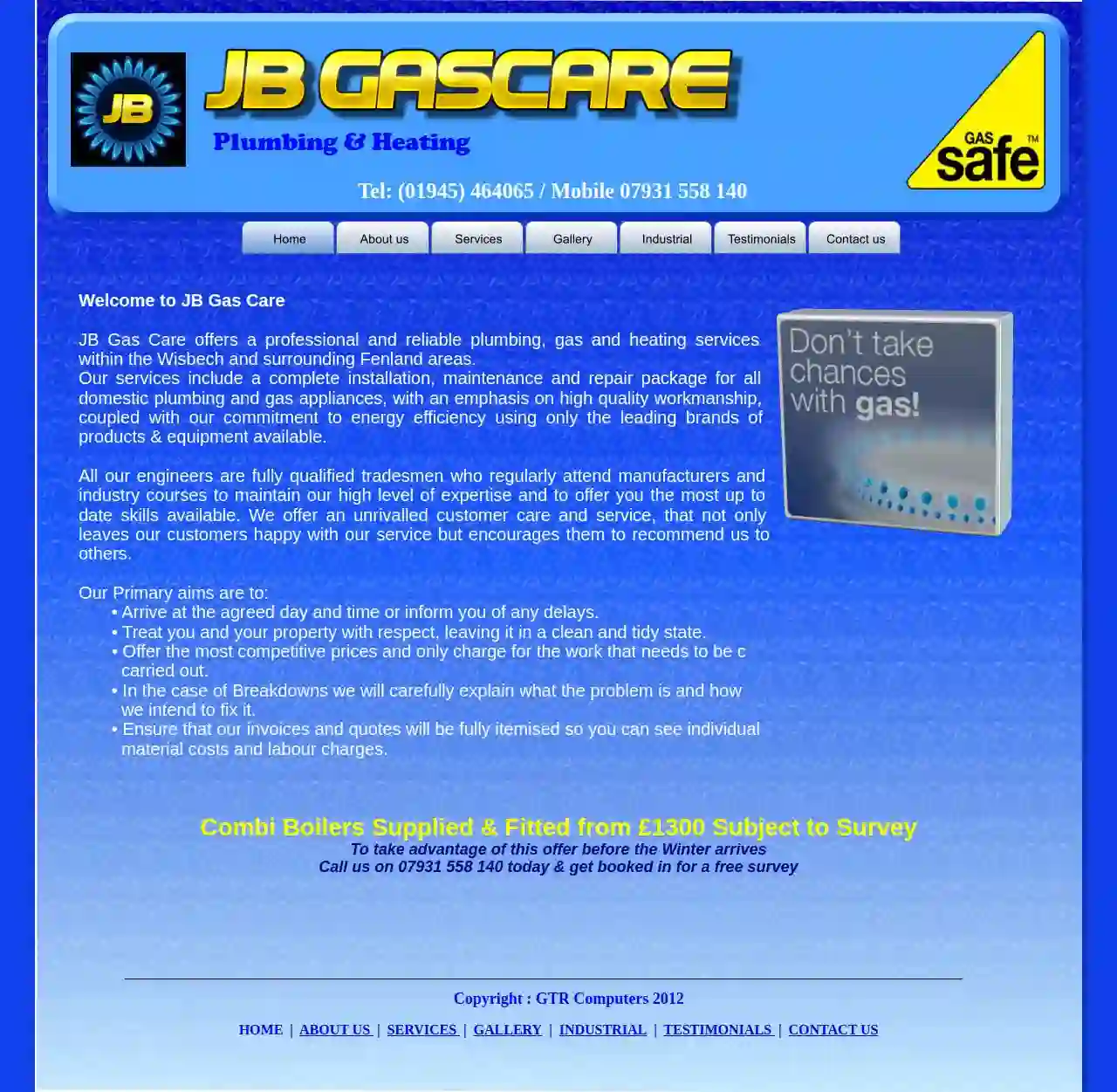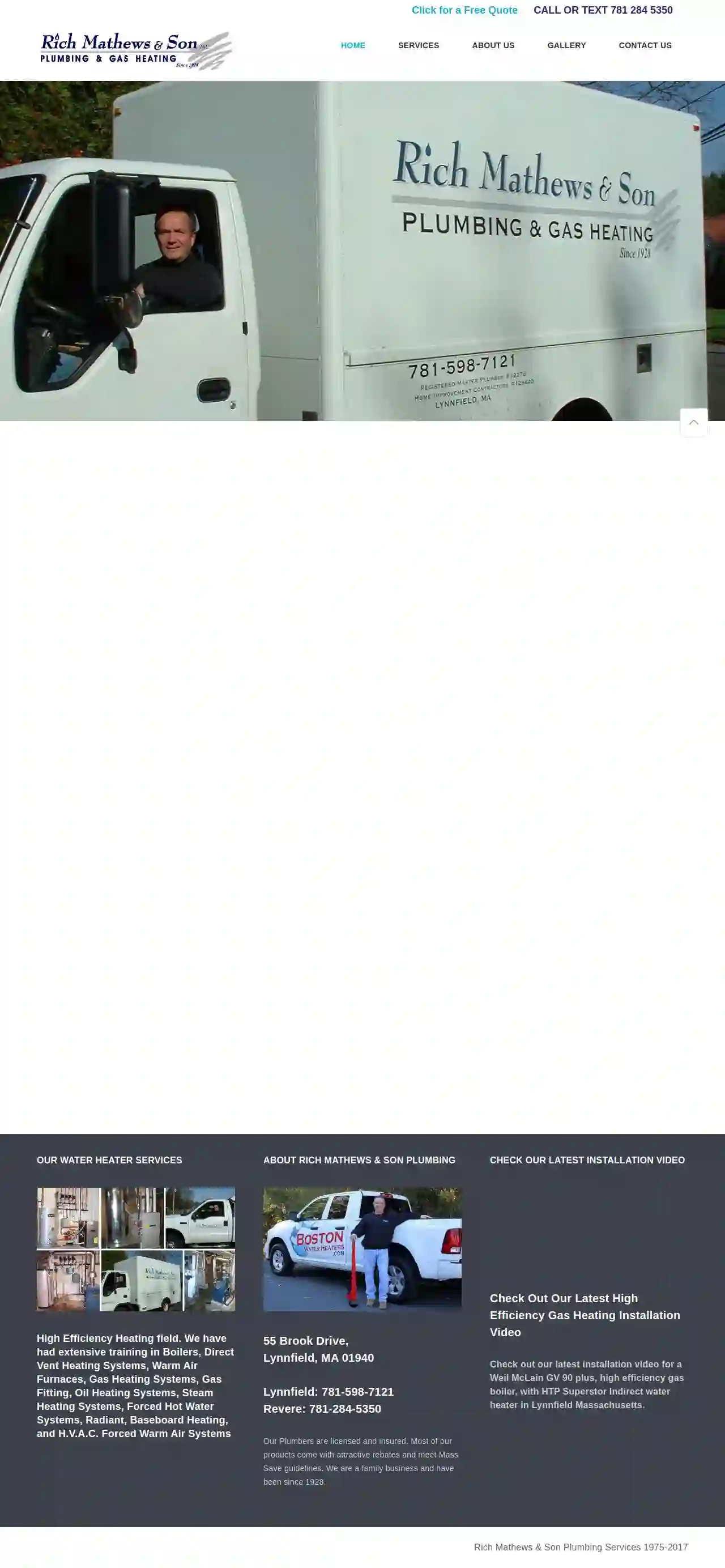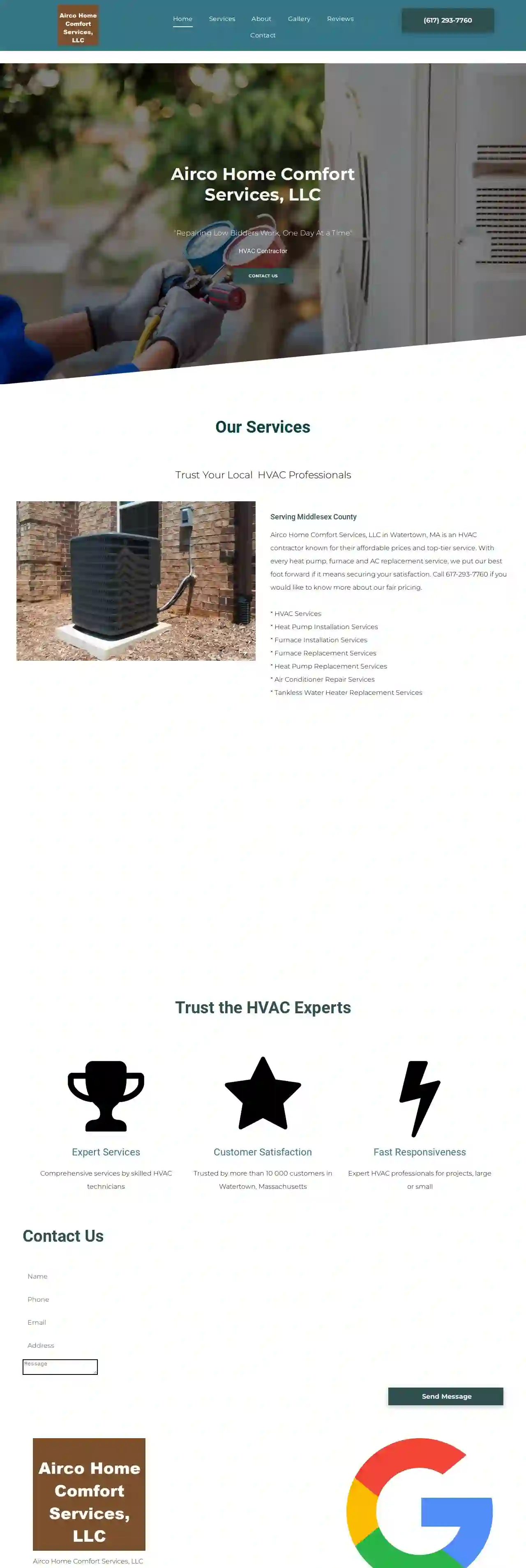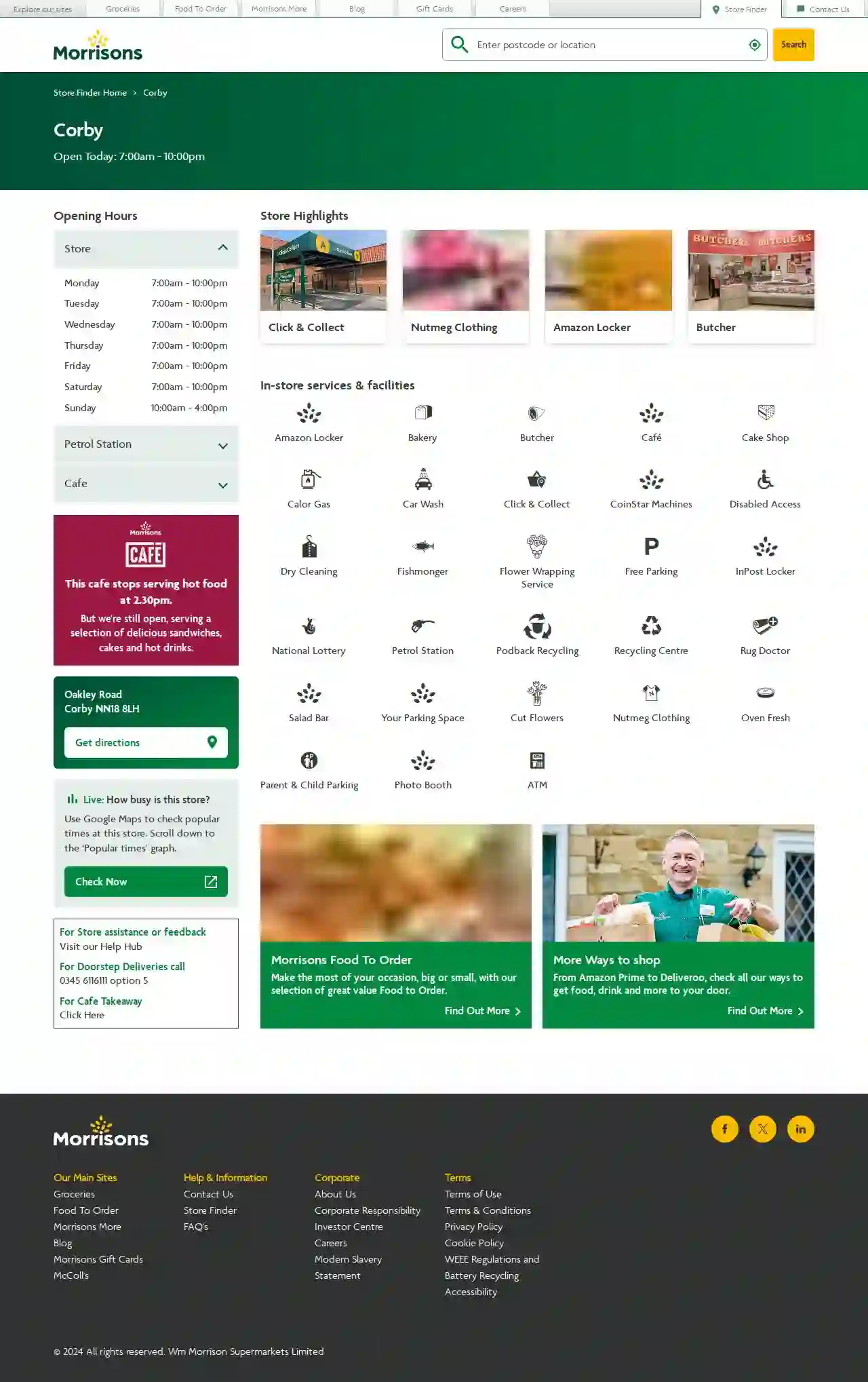AC Replacement Peterborough
Find Central Air Replacement in Peterborough
Receive multiple Air Conditioner Replacement quotes for your project today! Compare profiles, reviews, accreditations, portfolio, etc... and choose the best offer.

J B Gas Care
11 reviewsLittle Dowgate, The Jays, Wisbech, PE13 5DC, GBWelcome to JB Gas Care, a professional and reliable plumbing, gas and heating services provider within the Wisbech and surrounding Fenland areas. Our services include a complete installation, maintenance and repair package for all domestic plumbing and gas appliances, with an emphasis on high quality workmanship, coupled with our commitment to energy efficiency using only the leading brands of products & equipment available. All our engineers are fully qualified tradesmen who regularly attend manufacturers and industry courses to maintain our high level of expertise and to offer you the most up to date skills available. We offer an unrivalled customer care and service, that not only leaves our customers happy with our service but encourages them to recommend us to others. Our primary aims are to: • Arrive at the agreed day and time or inform you of any delays. • Treat you and your property with respect, leaving it in a clean and tidy state. • Offer the most competitive prices and only charge for the work that needs to be carried out. • In the case of Breakdowns we will carefully explain what the problem is and how we intend to fix it. • Ensure that our invoices and quotes will be fully itemised so you can see individual material costs and labour charges.
- Services
- Why Us?
- Accreditations
- Our Team
- Gallery
Get Quote
Rich Mathews & Son Plumbing & Gas Heating
59 reviews55 Brook Drive, Lynnfield, 01940, GBRich Mathews & Son Plumbing is a Fully Licensed and Insured, Gas Heating Contractor. We install, High Efficiency Gas Heating Systems, Gas Boilers, Gas Furnaces, Forced Warm Air Systems, Steam Heating Systems, Oil to Gas Conversions, Gas Hot Water Heaters, Tankless Hot Water Heaters, On Demand Hot Water Heaters, Indirect Hot Water Heaters, Power Vented Hot Water Heaters and, Electric Hot Water Heaters. We pride ourselves with being a Gas Heating contractor that constantly gets trained with the latest technology in our ever changing field. We also pride ourselves with the ability to provide a new heating system, HVAC or water heater to fit all budgets. Our estimates and consultations are always free of charge and we look forward for the opportunity for our family to serve yours.
- Services
- Why Us?
- Our Team
- Gallery
Get Quote
Kraken Plumbing & Heating
542 reviewsBedford, GBKraken Plumbing & Heating is a family-run business based in Bedford, offering high-quality installations and knowledgeable repairs of boilers, air source heat pumps, and all other gas appliances. Shane, our Director, is a 2nd Generation Heating engineer with over 18 years of experience and in-depth knowledge of system design and boiler repairs. Ollie joined the team in 2019 and is in his last year of apprenticeship. We are passionate about leaving the planet in a better way for future generations, constantly upgrading our knowledge and looking at future technology. We also carry out general plumbing works. We have in-depth knowledge about all boiler brands & products and can answer any questions you may have about a new, existing, or upcoming heating equipment & controls. We pride ourselves on our beautiful, neat work and will always advise on the best boiler or heat pump for your property and what control strategy would be most beneficial to get the maximum efficiency out of your system, reducing your running costs and the amount of CO2 your house releases into the atmosphere, future-proofing your home. We are registered to carry out gas works on natural gas and liquid gas. We are G3 unvented registered, Water Regulations Approved, Vaillant Master Technicians, and also Heat Geek Approved! For a reliable, knowledgeable, and trustworthy service, contact us today for installations, repairs, and annual servicing.
- Services
- Why Us?
- Accreditations
- Our Team
- Testimonials
- Gallery
Get Quote
Hawkins Plumbing & Heating Services
3.52 reviews100 South Street, Eastbourne, BN21 3QJ, GBHawkins Plumbing and Heating Services is a locally based company serving domestic customers in Eastbourne and the surrounding areas. We prioritize customer service and satisfaction, offering a reliable and professional service with high-quality workmanship. We handle all sizes of plumbing and heating jobs, from small repairs to large installations, and provide free estimates with no call-out charge. Our services include central heating installations and repairs, new boiler installations, boiler breakdowns, Gas Safe gas safety landlord certificates, gas installations (hobs, fires, etc.), unvented cylinder installations, bathroom installations, cylinder installations and repairs, roofing and guttering, and solar energy installations. We are experienced installers of Worcester Bosch solar energy packages and can advise on the best system for your home or commercial building.
- Services
- Why Us?
- Accreditations
- Gallery
Get Quote
Vasi Refrigeration HVAC
4.641 reviewsBoston, GBVasi Refrigeration HVAC - Boston North Shore has been providing high-quality AC, Heating, Refrigeration, and Ice Machine sales, service, and installation for over 15 years. As a family-owned business, we prioritize customer satisfaction and treat every client with respect and professionalism. We offer a wide range of services for both residential and commercial customers, ensuring competitive rates and expert workmanship. Our team of licensed and certified technicians is dedicated to delivering reliable solutions and exceeding your expectations. Whether you need a new system installation, repairs, or routine maintenance, Vasi Refrigeration is your trusted partner for all your HVAC needs.
- Services
- Why Us?
- Accreditations
- Gallery
Get Quote
Southern Mechanical and Electrical Ltd
54 reviews692 Wimborne Road, Bournemouth, BH9 2EG, GBSouthern Mechanical & Electrical provide services for heating, plumbing and electrics for all domestic and commercial maintenance and upgrade requirements. We excel in heating, plumbing, and electrical services for both domestic and commercial needs. With transparent pricing, guaranteed work, and swift response times, we set the standard in customer satisfaction. We cater for all sized projects in both residential and commercial environments. Whether you’re looking for a servicing and maintenance package for an existing plant, or looking to replace a boiler, Southern Mechanical & Electrical are dedicated to delivering the best solution for you.
- Services
- Why Us?
- Our Team
- Testimonials
- Gallery
Get Quote
Airco Home Comfort Services, LLC
513 reviews15 Main Street Unit 245, Watertown, 02472, GBAirco Home Comfort Services, LLC is an HVAC contractor known for their affordable prices and top-tier service. With every heat pump, furnace and AC replacement service, we put our best foot forward if it means securing your satisfaction. We provide a hodgepodge of services such as air conditioning repair and heat pump installation. Our licensed and insured HVAC specialists have been running the show since 1997. For years, we have been driven by the bedrock of honest work and professionalism. Not only is quality obvious in our workmanship, but our service, as well. At Airco Home Comfort Services, LLC in Watertown, MA, we know you are not only paying for a furnace installation, heat pump replacement or an air conditioner repair. We remember that you are also expecting a service that is beyond extraordinary. Our friendly and honest HVAC experts take pride in the quality service they provide. When scouring the community for a first-rate HVAC contractor, we hope you choose us.
- Services
- Why Us?
- Our Team
- Gallery
Get Quote
Ryan’s Plumbing and Heating (Services) Limited
593 reviews5 Sunderland Place, Bedford, MK42 0FE, GBRyan's Plumbing & Heating is a trusted local business serving homes and businesses across Hertfordshire, Bedfordshire, Buckinghamshire, Northamptonshire, and Cambridgeshire. We are a Worcester Accredited Installer, committed to providing high-quality workmanship and exceptional customer service. Our team of experienced and helpful staff is dedicated to ensuring your complete satisfaction. We offer a wide range of services, including gas and oil boiler installations, repairs, and servicing, as well as central heating installations, energy-efficient advice, gas safety inspections, unvented cylinders, landlord safety certificates, power flushing, and pump repairs. We pride ourselves on our no call-out fee policy and extended guarantees up to 12 years on selected Worcester Bosch boilers.
- Services
- Why Us?
- Accreditations
- Gallery
Get Quote
Morrisons
4Oakley Road, Corby, NN18 8LH, GBMorrisons Cafe is a place to relax and enjoy a bite to eat after your shopping trip. We offer a wide variety of delicious food and drinks, from classic favourites to new and exciting dishes. Our menu includes everything from breakfast to dinner, so there's something for everyone. We also have a great selection of cakes and pastries, perfect for a sweet treat. Our cafe is open every day, so come on down and see what we have to offer.
- Services
- Why Us?
- Gallery
Get Quote
R.W. Sullivan Engineering
46 reviews529 Main St. Suite 203, The Schrafft's City Center, Boston, 02129-1107, GBR.W. Sullivan Engineering is a full service mechanical, electrical, plumbing, fire protection design engineering and code consulting firm with a sustainable mindset. The firm also performs commissioning and retro commissioning services. Our headquarters is located near the Sullivan Square MBTA Station. We look forward to speaking with you!
- Services
- Why Us?
- Accreditations
- Our Team
- Testimonials
- Gallery
Get Quote
Over 12,692+ HVAC Businesses registered
Our HVAC contractors operate in Peterborough & surroundings!
HVACCompaniesHub has curated and vetted the Best HVAC Companies in Peterborough. Find the most trustworthy business today.
Frequently Asked Questions about AC Replacement
- Clear the Area: Ensure the installers have easy access to your existing unit and the installation location for the new one.
- Protect Your Belongings: Cover furniture and floors near the installation area to protect them from dust or debris.
- Provide Access: Make sure the installers have unobstructed access to your home's electrical panel, attic, or crawl space.
- Trim Plants: Trim any plants or bushes near the outdoor unit to provide adequate airflow.
- Communicate: Discuss the installation process with your contractor and confirm timing and other arrangements.
- Pets
- Allergies
- High dust levels in your home
- Frequent use of the AC system
What is a heat pump, and how does it work?
How do I prepare for an AC replacement installation?
How often should I replace my AC filter?
What is an Energy Star certified AC unit?
What is a heat pump, and how does it work?
How do I prepare for an AC replacement installation?
- Clear the Area: Remove any obstacles around the indoor and outdoor units, such as furniture, plants, or debris.
- Protect Your Belongings: Cover furniture and floors near the installation area to protect them from dust or debris.
- Provide Access: Make sure the installers have unobstructed access to your home's electrical panel, attic, or crawl space.
- Trim Plants: Trim any plants or bushes near the outdoor unit to provide adequate airflow.
- Communicate: Discuss the installation process with your contractor and confirm timing and other arrangements.
How often should I replace my AC filter?
- Pets
- Allergies
- High dust levels in your home
- Frequent use of the AC system